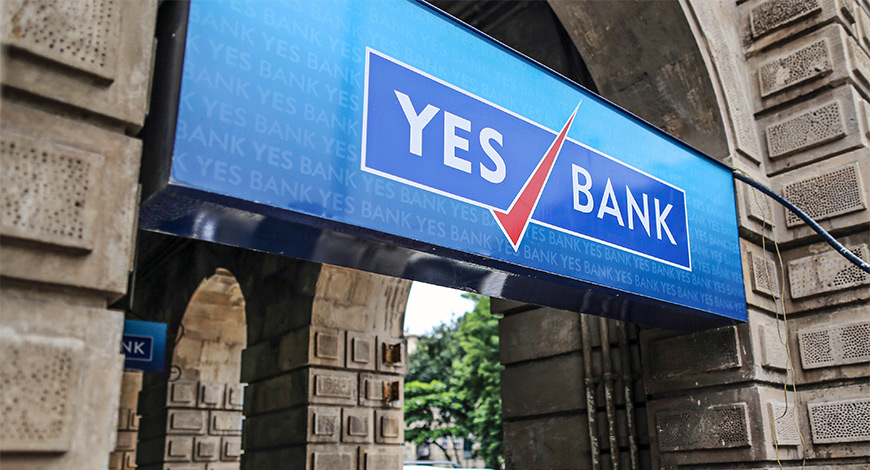Yes Bank Shares Sink After Shock Quarterly Loss, Rising Bad Loans
The bank's provision for loan losses in the quarter ended March 31 soared to Rs 36.62 billion from about Rs 4 billion a year ago, according to its results.
Photo Credit :

Investors sold out of Indian lender Yes Bank Ltd on Tuesday after rising bad loans triggered its first quarterly loss and brokerage Macquarie Research set a rare double-downgrade on the company's stock.
The private-sector lender's shares plunged up to 30 percent, its biggest intraday percentage loss in over 7 months, dragging down the broader NSE Index in the market's first response to its results reported late Friday. Markets were closed on Monday.
Yes Bank is part of a group of lenders to debt-ridden Jet Airways, which was forced to ground all flights earlier this month after it ran out of funds.
The bank's provision for loan losses in the quarter ended March 31 soared to 36.62 billion rupees ($524.60 million) from about 4 billion rupees a year ago, according to its results.
"We must eat humble pie today and admit we underestimated risks in structured finance. We got the call wrong," said Macquarie analyst Suresh Ganapathy, who downgraded the stock to "Underperform" from "Outperform" and cut his target price to 165 rupees from 270 rupees.
Yes Bank's shares were trading down 28 per cent at 169.7 rupees as of 0715 GMT.
Accumulation of bad loans have plagued the Indian financial sector and hurt banks as they set aside more money to cover soured assets.
Yes Bank said net interest margins for the quarter, the first under the leadership of new boss Ravneet Gill, dropped 30 basis points to 3.1 per cent, driven by higher accumulation of bad loans, called slippages. Gross slippages came in at 34.81 billion rupees.
Of that, 5.52 billion rupees were on account of exposure to an airline, the bank said without naming the carrier, while 5.29 billion rupees was because of exposure to struggling infrastructure conglomerate IL&FS.
"This is significantly higher than the normalised run-rate the bank reports," analysts at brokerage Investec said in a note, identifying exposure to Jet as one of several factors.
Other Indian banks with significant exposure to the debt-riddled airline include the country's biggest lender State Bank of India and smaller rival Punjab National Bank.
NEW LEADERSHIP
Yes Bank named former Deutsche Bank India head Ravneet Gill as chief executive in January after the central bank demanded founder Rana Kapoor be replaced following a spat over breaches of confidentiality and regulatory guidelines.
The central bank's pressure was seen by analysts at the time as a sign of its increasingly assertive approach to tackling Indian lenders' bad debts.
Newspaper Mint reported on Thursday that Gill had planned to replace Yes Bank's management to fix alleged governance lapses and slipshod policies. Yes Bank has previously denied those reports.
Gill denied management reshuffle plans in an interview with CNBC-TV18 on Tuesday.
"One of the upsides of the bank is the quality of management that we have and I would love to have the stability of the senior management that we have," Gill said.
